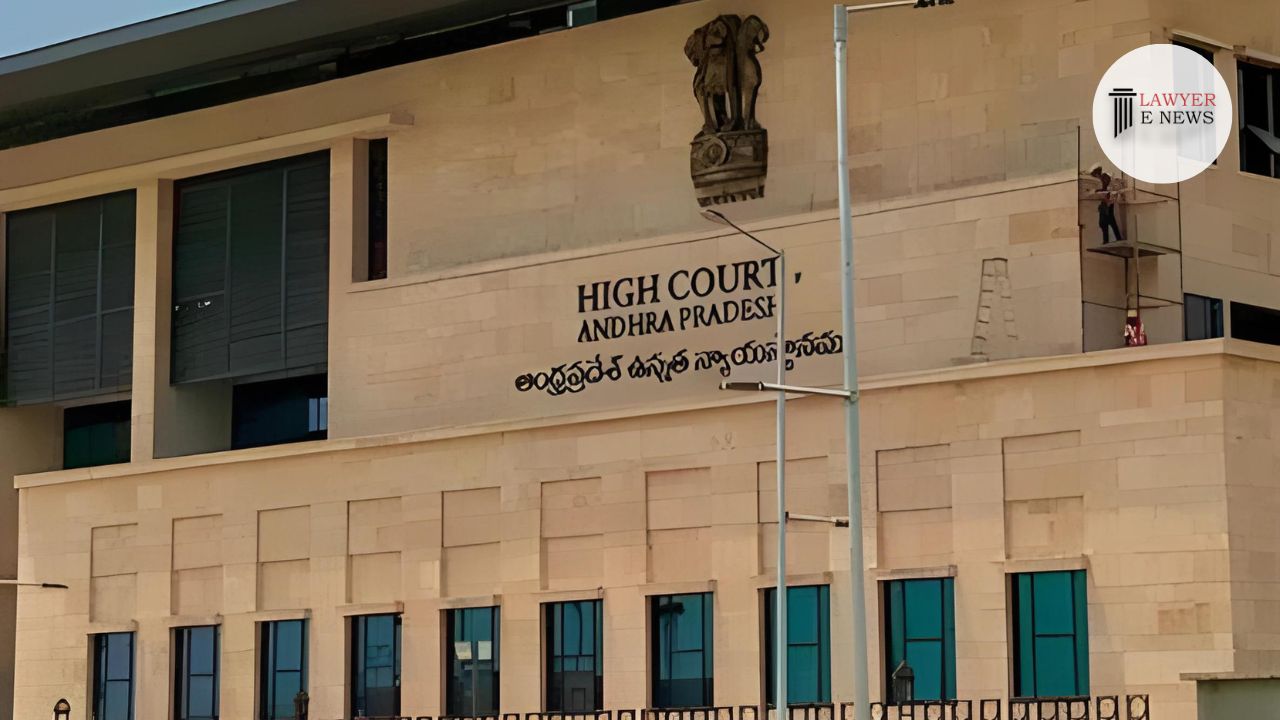-
by Admin
15 February 2026 5:35 AM



High Court Sets Aside RDO’s Order in Land Record Entry Dispute, Directs Parties to Follow Proper Legal Channels - The High Court of Andhra Pradesh has set aside an order by the Revenue Divisional Officer (RDO) related to land record entries, emphasizing the correct procedural framework under the A.P Records of Rights in Land and Pattadar Pass Books Act, 1971. The judgment, delivered by a bench comprising Justice R. Raghunandan Rao and Justice Harinath N., underscores the necessity of adhering to statutory provisions for the amendment of land records.
The appellants, Appikonda Appa Rao, Appikonda Ramana, and Appikonda Kanna Rao, had their names entered in the revenue records for 0.30 acres of land in Nagavaram Village, Munagapaka Mandal, Visakhapatnam District. The respondent, Patamsetti Saraswathi Kumar, contested these entries, alleging they were made without proper authority and without a specific order from the Tahsildar. The RDO had ruled in favor of the respondent, prompting the appellants to challenge the decision, arguing that the appeal was not maintainable as it was filed against a revenue entry rather than an order.
The court delineated the procedural requirements under the A.P Records of Rights in Land and Pattadar Pass Books Act, 1971. Justice R. Raghunandan Rao clarified that appeals under Section 5(4) of the Act are only maintainable against specific orders passed by the Tahsildar or the Revenue Divisional Officer. In the absence of such an order, the appropriate recourse is a revision petition under Section 9 of the Act.
“The appeal was not filed against any specific order of the Tahsildar but against an entry which is in the revenue records,” the court noted. This distinction was critical in the court’s decision to set aside the RDO’s order. The judgment highlighted that an irregular change in the revenue records without any underlying order must be addressed through a revision petition to the District Collector.
The court reiterated the statutory framework for rectifying land records, emphasizing the roles of different authorities. Under Section 5(1) and 5(2)(a) of the Act, the Tahsildar must determine whether and how the record of rights should be amended following the acquisition of rights in land. Any order made can be appealed under Section 5(4). However, in the absence of such an order, corrections to revenue records should be sought through Section 9, which allows the District Collector to review and correct entries.
Justice R. Raghunandan Rao remarked, “The language of Section 5(4) of the Act makes it clear that the appeal has to be against a specific order passed by the Tahsildar or the Revenue Divisional Officer. In the absence of an order, there cannot be any appeal under Section 5(4) of the Act.”
The High Court’s decision emphasizes the importance of following correct legal procedures for the amendment and rectification of land records. By setting aside the RDO’s order, the court has clarified that grievances regarding revenue record entries must be addressed through the appropriate channels, specifically a revision petition under Section 9 of the Act. This judgment is expected to have significant implications for future cases involving land record disputes in Andhra Pradesh.
Date of Decision: July 19, 2024
Appikonda Appa Rao & Others vs. The State of Andhra Pradesh & Others
